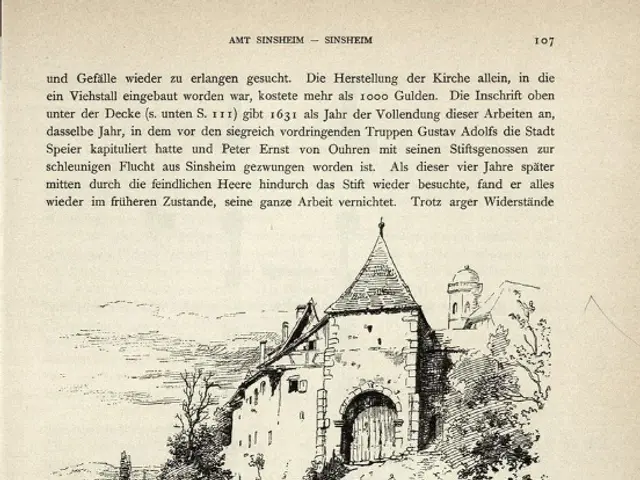Tips for Home Remedies to Ease Heart Palpitations
Got Your Heart Racing? Here's a Few Ways to Tame It Down
Are you feeling that unsettling thump-thump or rapid pulsation in your chest? It's a common experience, and chances are, it's nothing too serious. But we get it, it can be alarming! So let's discuss some home remedies to help you calm your heart and get it back to normal.
Our bodies - mysterious creatures, aren't they?
When heart palpitations strike, it's only natural to feel anxiety, especially when we're generally unaware of the regular rhythm of our heart. Many factors can cause these uninvited visitors, and luckily, most aren't cause for extreme concern. Could be that extra shot of espresso or increased stress levels.
So, how can you get a grip on your racing heart?
First and foremost, don't panic! It sounds trivial, but trust us, freaking out will only make things worse. As Dr. Tamanna Singh, a cardiologist, puts it, "When we worry and stress, our heart rate speeds up..." You can't argue with that!
Deep breaths are your ally in this situation. Taking a moment to regulate your breath will help your body relax and shift from its "fight or flight" mode to the more tranquil "rest and digest" mode. The popular 4x4 breathing technique, consisting of four-second inhales, four-second holds, four-second exhales, and four-second pauses, may do the trick. You can adjust the duration as needed.
When you're feeling anxious, your body releases adrenaline, which causes your heart palpitations. By taking deep breaths, you can help reduce this adrenaline level and take control of your racing heart.
Vagal maneuvers - who knew your body was so interesting?
Another way to activate your "rest and digest" mode is through vagal maneuvers. These physical actions stimulate your vagus nerve, which can help regulate your heart rate and bring you out of your "fight or flight" state.
Try tensing up your muscles and bearing down as if having a bowel movement, forming your mouth like an "O" and exhaling hard, or splashing cold water on your face. These actions may help slow down your heart rate and put an end to your palpitations. Remember, these techniques should be approached cautiously, especially if you have any pre-existing conditions or high blood pressure.
Identifying triggers - the key to a skip-free heart
What's causing those annoying palpitations? Recognizing the culprits can help you take steps to prevent them. Common contributors include low electrolyte levels, caffeine, nicotine, alcohol use, and stress. Keep a journal of your palpitation episodes to help identify patterns and potential causes. This way, you can provide your healthcare provider with valuable information during your next visit.
When to seek professional help
Ninety-nine percent of the time, your heart will return to its regular rhythm, and there's nothing to worry about. However, if you experience other concerning symptoms, such as a high heart rate, pain, or dizziness, seek immediate medical attention. If you don't feel unwell but have frequent or severe palpitations, talk to your healthcare provider during your next visit to put your mind at ease.
Remember, your heart's irregularities can often be managed at home, but it's essential to address them and identify potential causes to prevent future occurrences. Stay hydrated, eat a balanced diet rich in electrolytes, and avoid excessive stimulants such as caffeine and nicotine. Deep breathing exercises, vagal maneuvers, and mind-body practices like meditation, yoga, or tai chi can also help manage stress and regulate your heart rate.
Stay cool, calm, and focused - and remember, you've got this!
Are you wondering about the underlying causes of your racing heart? Understanding the factors that trigger heart palpitations, such as low electrolyte levels, caffeine, stress, and alcohol use, can help you manage them effectively.
Did you know that taking care of one's mental health contributes significantly to cardiovascular health? Practicing stress-reducing activities like meditation and yoga can help regulate your heart rate and provide a calmer mental state, benefiting both your mind and body.
Maintaining overall health and wellness is crucial for a well-functioning heart and mind. Regularly engaging in activities promoting physical well-being, staying hydrated, eating a balanced diet rich in electrolytes, and avoiding excessive stimulants and unhealthy habits are key aspects of ensuring good health.







